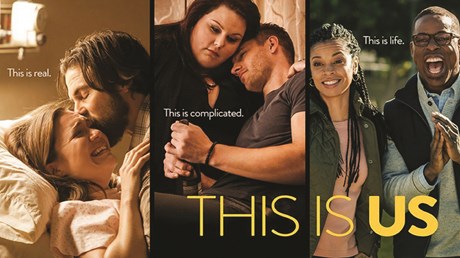Even in its most tear-jerking moments, the runaway NBC hit affirms our eternal hope.

Caution, many spoilers ahead.
If you haven’t seen NBC’s smash hit show This Is Us, it’s likely that you’ve at least heard about it (and equally likely that the person who told you about it cried a little during the explanation). The emotionally-charged drama has captivated viewers nationwide, many of whom have reverted to the old-fashioned, pre-“binge-watching” habit of anticipating a new episode each week. America has fallen in love with This Is Us.
The show follows Jack Pearson, his wife, Rebecca, and their kids: Kevin, Kate, and adoptee Randall. In each episode, viewers see the beginnings of the Pearson family, learning about Jack and Rebecca’s early marriage and the kids’ childhoods. Simultaneously, viewers discover how the kids are handling life as young adults and what has happened to them and their parents 36 years after their births. The show has many strengths, but this subtle time-hopping element is one of its most charming features.
Last September’s pilot opened with the impending birth of the Pearsons’ triplets—an event that, I imagine, was part novelty, part nostalgia for many audience members. I doubt many viewers gave birth to triplets themselves in 1980, but those details feel irrelevant; if babies represent anything, it’s hope, and tripling the number of infants only raises the stakes of potential.
As Jack declares just before his babies are delivered, “I’m going to need everyone… to believe me when I say that only good things are going to happen today.” Whether or not you’ve brought a baby (or two, or three) into this world, there is a desperate resolve in his voice that rings true for all of us—for …
Source: Christianity Today Most Read